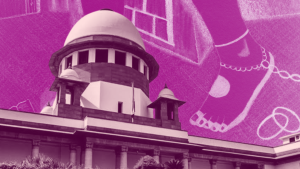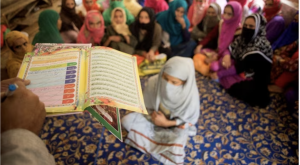Why Instant And Populist Anti-Rape Laws Will Fail To Deliver Justice
Fueled by public demands for quick justice, and pushed through hastily with no effort at addressing systemic issues, these laws cannot bring real change, say experts
- Priyanka Tupe

Hastily drafted, populist anti-rape bills that seek hurried trials and capital punishment for perpetrators cannot deliver justice to the survivors and victims of heinous sexual violence or act as effective detterents, say legal scholars and gender activists interviewed by Behanbox.
The new Aparajita Women and Child (West Bengal Criminal Laws) Amendment Bill, 2024, passed in the wake of the public outrage over the brutal rape and murder of a resident doctor at the RG Kar Medical College, mandates that rape investigations be completed within 21 days. It lays down the death penalty for convicted offenders if the crime results in the victim’s death or leaves her in a vegetative state. It also seeks a specialised task force to ensure women’s safety and expedite investigations in rape cases.
The bill now awaits assent of the President.
Other states have taken anti-rape legislative steps like this in the past but they have yet to be implemented or even given the President’s assent. One is the Andhra Pradesh’s Disha Bill which was precipitated by the rape and murder of Hyderabad veterinary doctor in 2019. It mandates that rape investigations be completed within 7 working days of the filing of an FIR and trials concluded in 14 working days. The other is Maharashtra’s Shakti Bill introduced four years ago which proposed the death penalty for rape, gang rape, and causing severe harm through acid use.
“These are merely quick fixes that won’t address the underlying problem,” says Rama Sarode, a senior lawyer and gender rights activist based in Maharashtra. “The Aparajita bill’s emphasis on reducing investigation timelines and increasing punishments is a flawed approach. Moreover, putting names like ‘Aparajita’, ‘Disha’, or ‘Shakti’ on bills, or labelling the Delhi case ‘Nirbhaya’ represents a form of political manoeuvring that shifts attention from the systemic issues behind gender-based violence. Glorifying survivors or victims while neglecting their actual struggles only serves to patronise them.”
Criminal laws fall under the concurrent list, and this means that both the central and state governments can draft criminal laws but state bills do need the President’s assent. And if the ruling parties at the Centre and state are at loggerheads – as is the case with all the state anti-rape bills we have discussed so far – such bills may not get that stamp, says Rama. “State governments, in turn, position themselves as proactive changemakers, shifting the responsibility to the centre. This is exactly what’s happening with West Bengal’s anti-rape bill,” she says.
What is needed is a long-term approach that looks at systemic issues underlying sexual violence, say experts. Instead of rushing new laws, feminist legal scholar Surbhi Karwa advocates the implementation of the Justice Verma Committee’s recommendations for systemic changes. “The Justice Verma Committee, formed after the 2012 Delhi rape case, called for discussions about consent to begin in schools and colleges. Unfortunately, these recommendations, along with suggestions for electoral reforms, have been largely ignored by lawmakers and state actors,” she says.
Debate Over Death Penalty
Heinous acts of sexual violence have time and again been followed by loud public demands for death penalty for offenders. But feminists and human rights advocates have argued against this.
“One of my main objections to the Aparajita Bill is the inclusion of capital punishment,” says Rama. “Culprits may be more likely to kill their victims to destroy evidence if they know that punishment for rape and rape and murder are both death.”
The Justice Verma Committee had opposed the death penalty for rapists even in the rarest of rare cases when its recommendations led to the criminal law amendments in 2013. It had pointed out that not only would capital punishment not deter rape but it also that it is regressive.
Surbhi warns of the possible impacts of the death penalty. “In many cases the accused is known to the survivor. Death penalty may make women hesitate to report a violence. In the Indian premise of patriarchy and ‘familial values’- standing against men from the family has been extremely difficult for survivor women,” she says.
In the wake of the Delhi gang rape case in 2012, many measures had been initiated – these included the setting up of special fast track courts and the provision of a Nirbhaya fund to ensure safety logistics. However, as reports have pointed out, these measures were poorly implemented. There have been reports of underutilisation of Nirbhaya funds. Across projects under the Fund, surveillance based interventions for women’s safety are prioritised over the educational and electoral reforms recommended by the Justice Verma committee, as Behanbox has reported.
Trouble With Fast-Tracking
As we said earlier, under the Aparajita bill, rape investigations must be completed within 21 days of filing the First Information Report (FIR). In exceptional cases, an extension of 15 days may be granted, making the total maximum investigation period 36 days.
These attempts at hastening trials have been criticised by experts. Says Rama Sarode: “The term ‘fast track’ courts is an eye-wash – there is no such thing in reality. What it means is existing courts should conduct speedy trials, avoiding adjournments as far as possible. However much we advocate such speedy trials, rape cases still take a lot of time because of the lack of adequate judicial infrastructures, shortage of judicial officers, police, judges, public prosecutors. Pendency of the cases is extremely high in India.”
Feminist and human rights groups have been advocating for police and judicial reforms, one of the key demands has been an increase in the number of police and judges in proportion with the population and vacant positions.
With 25 years of experience in jurisprudence, Rama explains why these laws are unlikely to ensure justice. “When agencies are under pressure to complete investigations within 21 or 36 days, there is a high likelihood of flawed investigations. This could result in the real perpetrators escaping justice, while vulnerable and marginalised individuals may be wrongly implicated,” she says.
Flawed And Dangerous Responses
The case of Armogam Kounder highlights the problem with how investigations are conducted in high profile sexual crimes. Armogam, a migrant worker from Tamil Nadu who worked as a sweeper and slept on Mumbai’s pavements, was wrongly accused of rape by the Oshiwara Police in 1995. Convicted by the sessions court in 2000 based on fabricated evidence, Armogam’s case took a turn when Iqbal Bargir, the investigating officer, died by suicide. In his suicide note, he revealed that senior officers had pressured him to frame Armogam. Eleven years later Armogam was acquitted by the Bombay High Court, with the help of Pune-based human rights lawyer Aseem Sarode.
Experts argue that rushed investigations open the door for evidence tampering and the destruction of crucial witnesses. Take the 2019 Hyderabad rape case, for instance. The demands for speedy justice for the victim of the and death penalty for the rapists had reached a fever pitch. And the police, while escorting the four offenders, ended up killing the accused in an ‘encounter’ and the Supreme Court was to later declare these as extra judicial killings.
“We will never truly know who committed the Hyderabad rape, as the accused were never put on trial. These encounters are nothing but bloodthirsty acts in the name of justice,” Rama says. “Killing and demonising accused individuals is easier than providing them with corrective measures in prison, conducting speedy but fair trials, and securing proper convictions.”
Completing the complex tasks of investigations within 7, 14, or even 21 days is practically impossible, she maintains. Once an FIR is filed, the investigating officer is responsible for collecting evidence, ensuring the survivor’s safety, and conducting medical examinations of both the survivor and the accused. The officer must present the accused in court within 24 hours to request police custody for further investigation, file the documents that allow the survivor to access rehabilitation schemes, conduct an identification parade, record the survivor’s statement before a magistrate, and prepare for court hearings if the accused applies for bail.
All of this must happen while corroborating evidence and preparing the chargesheet for court, coordinating with the public prosecutor, and framing charges. If the offender is absconding in another state, the process of locating and arresting becomes even more complex and time consuming.
Rama explains that conducting a proper trial typically requires at least five hearings. Each trial involves the participation of at least five key parties: the survivor, the police and public prosecutor, the accused and their defence counsel, witnesses, and the court itself. Accomplishing all this in just three or four weeks creates space for flawed investigations, leading to lower conviction rates, she says.
Despite stringent punishments and amendments to criminal laws since the Justice Verma Committee’s 2023 report following the Delhi rape case, the conviction rate for rape cases has not seen significant improvement.
‘Need Extensive Consultations’
Surbhi Karwa emphasises that the process of making a law is a long and deliberate one. The Aparajita bill had arrived a little under a month after the crime at the RG Kar hospital.
“Law-making involves extensive consultations with various stakeholders such as scholars, lawyers, jurists, activists, and feminist movements. Critical engagement, conversations, and amendments to drafts are crucial steps that cannot be bypassed. In the case of West Bengal’s Aparajita bill, it’s unclear whether these consultations took place, and it seems likely that the process was rushed,” she says.
Rama Sarode points out in the case of the Shakti bill, the Maharashtra government held consultations with experts before it was tabled in the assembly. Counter opinions were taken into consideration, but later when the political alignment shifted in Maharashtra, the process was discontinued,” says the lawyer and gender rights activist who was invited for the consultation by Maharashtra government.
Karwa also points out the hypocrisy in politics regarding gender-based violence. “Politicians who push for quick fixes to address rape crimes often remain silent on larger issues: the normalisation of rape culture is evident when politicians make insensitive comments about survivors or even celebrate rapists by giving them political platforms. There’s no real political will to challenge the power structures that perpetuate violence.”
The 2012 Delhi gang rape case marked a significant turning point in India’s approach to sexual violence. It led to legal, social, and institutional reforms, including the Criminal Law Amendment Act of 2013, which broadened the definition of rape and introduced harsher punishments, such as the death penalty for repeat offenders and gang rapes. Acts like stalking, voyeurism, acid attacks, and sexual harassment were also criminalised. Special fast-track courts were established to expedite rape trials, although implementation has been inconsistent across regions.
The Juvenile Justice Act Amendment (2015) lowered the age of juveniles in serious crimes like rape from 18 to 16. This followed public outrage after one of the Delhi gang rape accused was found to be a juvenile.
Surbhi adds that gender-sensitive training is crucial for judges and police officers handling rape cases. “Many judges have made comments during trials that undermine the survivor’s testimony. This reflects the need for routine, nuanced training in gender sensitivity,” she says. Rama Sarode, who has trained judges and police officers in Maharashtra, agrees, noting that one-off training sessions have limited impact. “A gender-sensitive approach needs to be integrated into the curriculum and daily work practices for it to have a lasting effect.”
We believe everyone deserves equal access to accurate news. Support from our readers enables us to keep our journalism open and free for everyone, all over the world.




